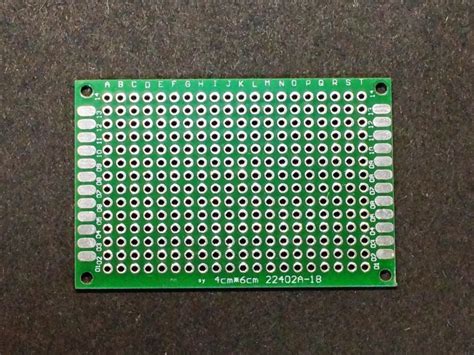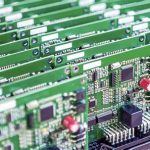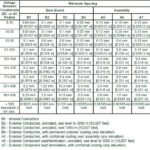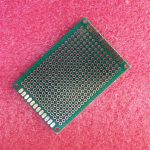What is a PCB Prototype?
A PCB prototype is a preliminary version of a printed circuit board used for testing and validation purposes. It is created to ensure that the design works as intended and meets all the necessary specifications before committing to large-scale manufacturing.
PCB prototypes are crucial in the product development process because they allow engineers to:
- Test the functionality of the circuit design
- Verify the layout and component placement
- Identify and fix any issues or errors
- Optimize the design for manufacturability and cost-effectiveness
Types of PCB Prototype Services
There are several types of PCB prototype services available, each with its own advantages and considerations. Let’s take a closer look at some of the most common options.
1. Quick-Turn PCB Prototypes
Quick-turn PCB prototypes are designed for projects with tight deadlines. These services offer fast turnaround times, typically ranging from 24 hours to 5 days, depending on the complexity of the design and the chosen manufacturing specifications.
Key features of quick-turn PCB prototypes include:
- Rapid fabrication and assembly
- Ideal for urgent projects or early-stage testing
- Suitable for simple to moderate complexity designs
- Limited options for customization and special requirements
2. Standard PCB Prototypes
Standard PCB prototypes offer a balance between speed and flexibility. These services provide a wider range of options for materials, finishes, and manufacturing specifications compared to quick-turn prototypes. Turnaround times for standard PCB prototypes usually range from 5 to 15 days.
Key features of standard PCB prototypes include:
- More customization options available
- Suitable for moderately complex designs
- Ideal for thorough testing and validation
- Better suited for projects with slightly longer timelines
3. Advanced PCB Prototypes
Advanced PCB prototypes cater to projects with complex designs or specific requirements. These services offer the most comprehensive range of manufacturing options, including advanced materials, high-density interconnects (HDI), and specialized finishes.
Key features of advanced PCB prototypes include:
- Supports highly complex designs
- Offers the widest range of materials and finishes
- Ideal for demanding applications and high-performance products
- Longer turnaround times (typically 15-30 days)
- Higher costs compared to quick-turn and standard prototypes
4. Flexible PCB Prototypes
Flexible PCB prototypes are designed for applications that require the circuit board to bend, fold, or conform to a specific shape. These services specialize in manufacturing PCBs using flexible substrates, such as polyimide or polyester.
Key features of flexible PCB prototypes include:
- Enables the creation of non-planar circuits
- Ideal for wearable electronics, medical devices, and compact designs
- Requires specialized design considerations and manufacturing processes
- Longer turnaround times and higher costs compared to rigid PCB prototypes
5. Rigid-Flex PCB Prototypes
Rigid-flex PCB prototypes combine the benefits of both rigid and flexible PCBs. These services create circuit boards with rigid sections for mounting components and flexible sections for interconnections or conforming to unique shapes.
Key features of rigid-flex PCB prototypes include:
- Combines the stability of rigid PCBs with the flexibility of flexible PCBs
- Ideal for applications requiring both rigid and flexible sections
- Enables more compact and lightweight designs
- Requires specialized design and manufacturing expertise
- Higher costs and longer turnaround times compared to standard rigid PCB prototypes
Choosing the Right PCB Prototype Service
Selecting the appropriate PCB prototype service depends on several factors, including:
- Project requirements and complexity
- Timeline and budget constraints
- Desired features and customization options
- Intended application and environment
To help you make an informed decision, consider the following table comparing the key characteristics of each PCB prototype service:
| Service Type | Complexity | Turnaround Time | Cost | Customization |
|---|---|---|---|---|
| Quick-Turn | Simple to Moderate | 24 hours to 5 days | $ | Limited |
| Standard | Moderate | 5 to 15 days | $$ | Moderate |
| Advanced | High | 15 to 30 days | $$$ | Extensive |
| Flexible | Moderate to High | 10 to 20 days | $$$ | Specialized |
| Rigid-Flex | High | 20 to 40 days | $$$$ | Specialized |
When choosing a PCB prototype service, it’s essential to partner with a reputable and experienced manufacturer. Look for a provider that offers:
- High-quality materials and processes
- Strict quality control and testing procedures
- Excellent customer support and communication
- Competitive pricing and transparent quotes
- Ability to scale from prototyping to mass production

Frequently Asked Questions (FAQ)
-
Q: How long does it take to receive PCB prototypes?
A: The turnaround time for PCB prototypes varies depending on the service type and complexity of the design. Quick-turn prototypes can be delivered in as little as 24 hours, while advanced or specialized prototypes may take up to 30 days or more. -
Q: What is the minimum order quantity for PCB prototypes?
A: Many PCB prototype services offer low minimum order quantities, often starting at just a few units. This allows engineers to test and validate their designs without committing to large production runs. -
Q: Can I request custom specifications for my PCB prototypes?
A: Yes, most PCB prototype services offer a range of customization options, including material selection, surface finishes, and special requirements. The level of customization available depends on the service type and the capabilities of the manufacturer. -
Q: How much do PCB prototypes cost?
A: The cost of PCB prototypes varies depending on factors such as the service type, design complexity, materials, and quantity. Quick-turn and standard prototypes are generally more affordable, while advanced and specialized prototypes may have higher costs due to the additional manufacturing requirements. -
Q: Can I use PCB prototypes for small-scale production?
A: While PCB prototypes are primarily designed for testing and validation, some services may offer the option to use them for small-scale production. However, it’s essential to discuss your specific needs with the manufacturer to ensure that the prototypes meet your production requirements and that the costs are feasible for your project.
Conclusion
PCB prototypes play a critical role in the electronics product development process, allowing engineers to test, validate, and optimize their designs before moving into mass production. By understanding the different types of PCB prototype services available and their key features, you can select the option that best suits your project requirements, timeline, and budget.
When choosing a PCB prototype service, consider factors such as design complexity, desired features, and the intended application. Partnering with a reputable and experienced manufacturer is crucial to ensure high-quality results and a smooth transition from prototyping to production.
By leveraging the appropriate PCB prototype service and working closely with your manufacturing partner, you can bring your electronics products to market faster, with greater confidence in their performance and reliability.






Leave a Reply